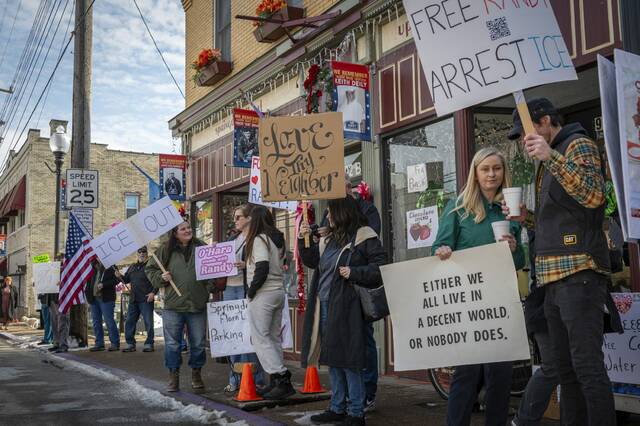Employers in Pittsburgh would not be able to discriminate against employees because they have been victims of domestic abuse, under a proposal introduced to City Council this week.
The measure, introduced by Councilwoman Erika Strassburger, would protect victims of domestic violence from employment and workplace discrimination. Some victims of domestic violence have faced employment discrimination “based on the perception they will cause a threat to public welfare or create a breach of peace,” the legislation says.
“Our hope is that if there is discrimination happening in this sense that it will provide an additional protection,” Strassburger said.
She said this would add to the city’s policy that domestic abuse victims cannot be discriminated against in housing.
If passed, the legislation would allow for anyone who feels they have been discriminated against at work because they are the victim of domestic abuse to file a complaint through the Commission on Human Relations.
About half of the women who seek help from the Women’s Center and Shelter of Greater Pittsburgh as they leave abusive relationships report having faced discriminatory issues within the workplace, said Nicole Molinaro, president and CEO of the Women’s Center and Shelter. Many of them, she said, have lost at least one job because of domestic violence.
“Typically, we find that survivors of domestic violence may need to take extra time off work because of court hearings or because of injuries, time they need to heal or spend at a doctor’s appointment,” she said.
Other victims struggle with abusive partners or exes who stalk them at work or threaten their co-workers, Molinaro said.
“Employers are not necessarily understanding of this,” she said. “A lot of times I think they might just get scared and want the problem to go away.”
That’s what happened to Stephanie Fox, a former domestic violence victim who is now the project manager for a new domestic violence shelter project at Center for Victims. Her abuser would harass her at work and make her coworkers feel unsafe, she said, causing her to lose several jobs.
When she did have a job, she said, she missed court hearings so she wouldn’t have to miss work. She prioritized keeping her job over taking care of her own emotional needs.
Making simple accommodations so that victims of domestic abuse can feel secure in their jobs, she said, would show appropriate support for victims.
“We need to support and care for those victims that are at work, that are doing it, that are trying to balance it all while healing,” Fox said, adding that victims who can’t keep their jobs sometimes feel they need to return to abusive relationships for financial stability. “We’re trying to avoid that trap so a victim doesn’t feel like they have to go back to their perpetrator.”
Some victims, she said, may feel like they’re failing if they can’t keep a job while healing from an abusive relationship — something she experienced herself.
“It’s about not revictimizing the victim,” Fox said. “It’s so important for employers to get on the same page.”
Leaving an abusive relationship can be difficult, Strassburger said, citing statistics that show it takes seven tries to get out of an abusive relationship on average. Ensuring those individuals aren’t also in jeopardy of losing their jobs — or missing out on promotions or raises — simply because they are victims of domestic abuse is one way the city can show its support, she said.
“You want to make sure as someone who is trying to leave domestic violence, that they have a stable source of income, that they have a roof over their head,” Strassburger said.
Having stable employment also ensures that parents who find themselves in such situations are able to continue caring for their children, she said.
“Many abuse victims have children, as I did, and I just wanted to be able to keep them safe and provide for them — and I couldn’t,” Fox said.
The measure can help victims of abuse recognize that their employer could help them connect with much-needed resources as they try to leave abusive situations, Molinaro said, touting a Women’s Center and Shelter program initiative called Standing Firm, which can help employers better handle such situations. Standing Firm helps companies learn how to recognize signs of domestic abuse — and how to respond to it and refer victims to appropriate resources.
“I think this will help change the culture so that domestic violence is something survivors feel like they can talk about at work as opposed to try to hide,” Molinaro said.
National statistics show that about one in four women and one in seven men experience domestic abuse, she said.
Resources are available through organizations like the Center for Victims and Women’s Center and Shelter of Greater Pittsburgh, which offers free, confidential services for victims of abuse.








